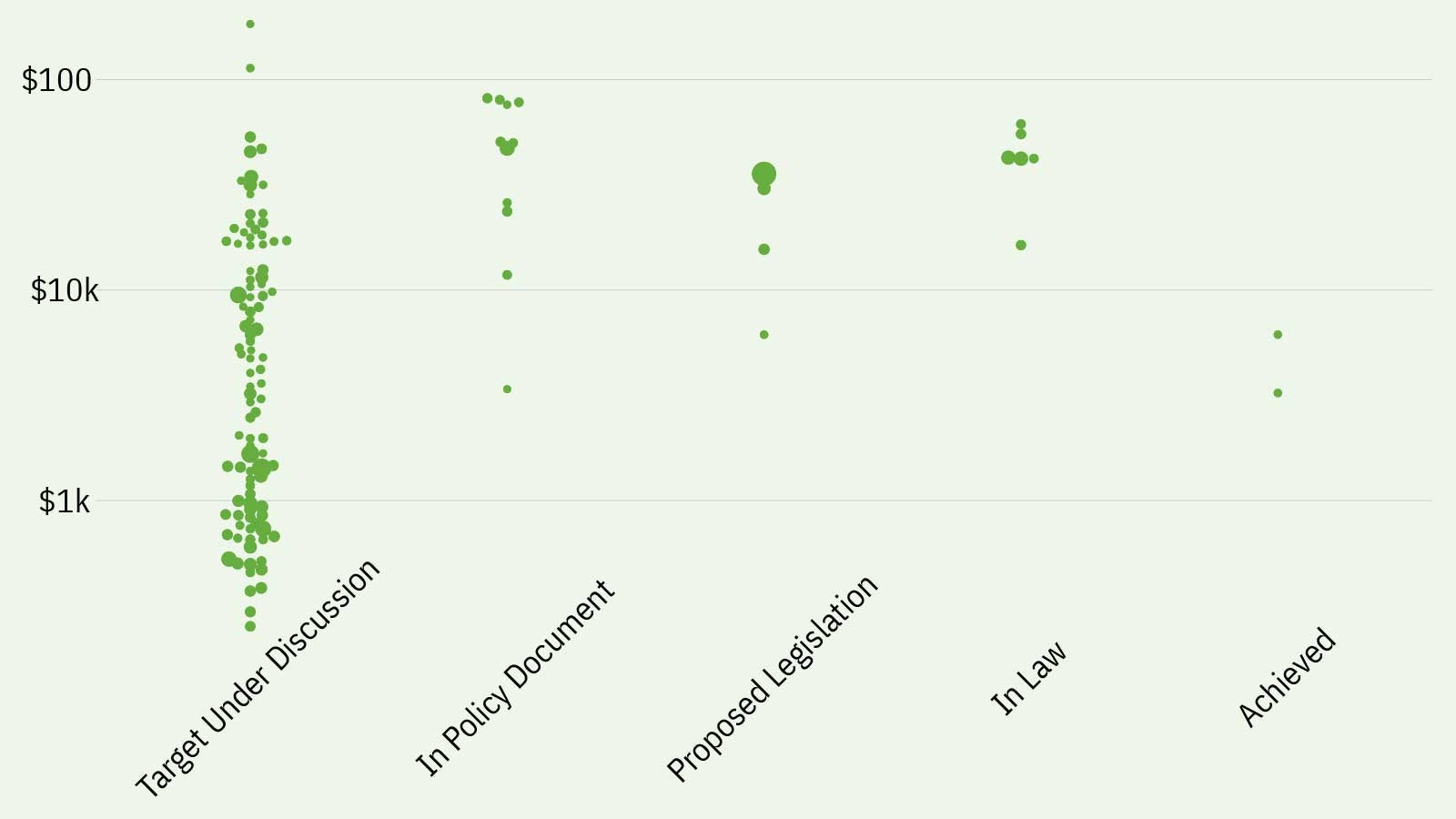
The European Union recently committed to reducing its emissions down to net zero by 2050. This means that they would completely decarbonise by reducing emissions as low as possible, and making up for any remaining emissions by taking carbon out of the air. This could be done by planting forests, building carbon capture and storage (CCS) facilities, or funding emissions mitigation projects in the developing world.
At least 123 countries around the world have committed to such net-zero emissions targets, including the 27 countries of the EU. Nearly all of these countries plan to be carbon neutral by 2050, but so far, only two countries have achieved carbon neutrality: Suriname and Bhutan. The rest are at various stages of implementing net-zero policies.

Discover B2B Marketing That Performs
Combine business intelligence and editorial excellence to reach engaged professionals across 36 leading media platforms.
In most nations, the target is still being discussed. A handful have either drawn up plans, proposed legislation, or even – in the case of the UK, France and Sweden – passed relevant laws.
Hungary, although traditionally sceptical of EU plans to tackle climate change, was actually one of the first countries to pass a domestic law committing the country to net-zero emissions by 2050, with plans to slash emissions in the transport sector and continue its reliance on nuclear power.

US Tariffs are shifting - will you react or anticipate?
Don’t let policy changes catch you off guard. Stay proactive with real-time data and expert analysis.
By GlobalData
Richer countries are more likely to have gone further down the path of implementing net-zero policies than poorer ones.





